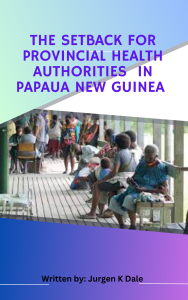The poor state of health services delivery through the inception of provincial health authorities is a complex issue with a variety of contributing factors. Some of the most common challenges include:
- Fragmentation of care:Provincial health authorities may be responsible for different aspects of the healthcare system, such as hospitals, clinics, and public health programs. This can lead to fragmentation of care, where patients have to go to multiple different providers to receive the care they need.
- Lack of resources:Provincial health authorities may not have the resources they need to provide high-quality healthcare services. This can be due to a number of factors, such as inadequate funding, corruption, and mismanagement.
- Shortage of qualified healthcare workers:Many provincial health authorities face a shortage of qualified healthcare workers, such as doctors, nurses, and midwives. This can be due to a number of factors, such as low salaries, poor working conditions, and a lack of training opportunities.
- Weak governance and leadership:Provincial health authorities may be plagued by weak governance and leadership. This can lead to corruption, mismanagement, and a lack of accountability.

These challenges can have a significant impact on the quality and availability of healthcare services. For example, fragmentation of care can lead to delays in diagnosis and treatment, and can make it difficult for patients to coordinate their care. Lack of resources can lead to shortages of essential medicines and equipment, and can make it difficult for patients to access essential services. A shortage of qualified healthcare workers can lead to long wait times for appointments and procedures, and can compromise the quality of care. Weak governance and leadership can lead to corruption, mismanagement, and a lack of accountability, which can further exacerbate the problems with the healthcare system.
The poor state of health services delivery through the inception of provincial health authorities has a number of negative consequences for the population. For example, it can lead to increased morbidity and mortality, particularly among vulnerable groups such as children and women. It can also lead to increased financial hardship for households, as they are forced to pay for private healthcare services or travel long distances to access public healthcare services.
The new digihealth system for Provincial Health Authorities in Papua New Guinea can be view on this link http://digihealthpng.com/main
Free download the book title The Setback for Provincial Health Authorities in Papua New Guinea The Setback for Provincial Health Authorities in Papua New Guinea
